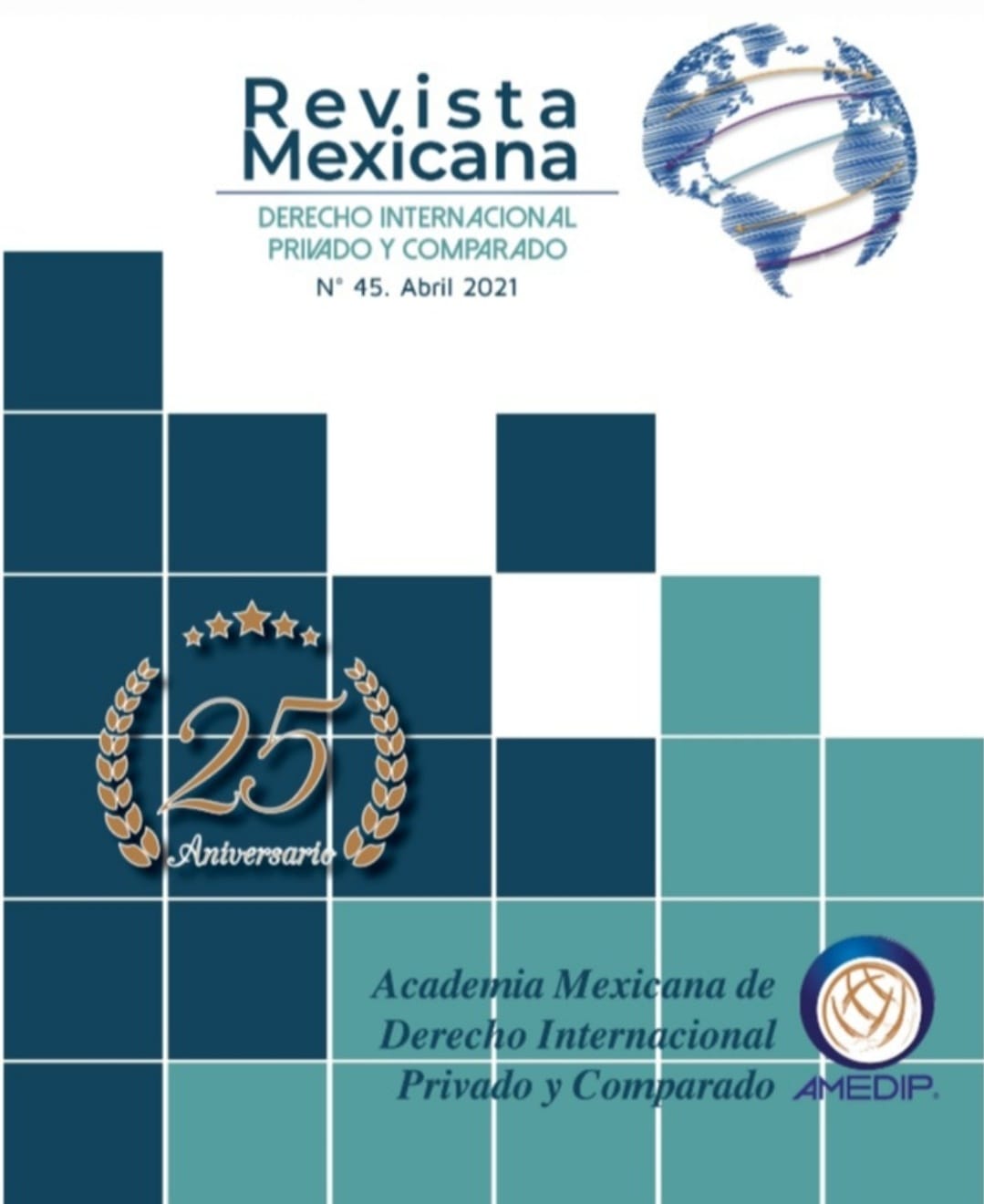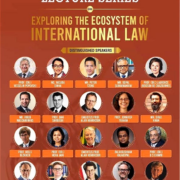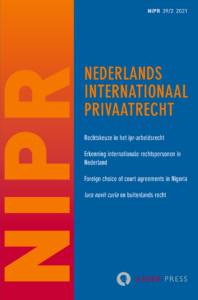
The Mexican Academy of Private International and Comparative Law (AMEDIP) has just published the 25th Anniversary Issue of the Mexican Journal of Private International Law. It is available here.
One of the main aims of this journal is to publish the papers presented at AMEDIP’s annual seminars, which must comply with the requirements set out in the convocations and are peer-reviewed. Click here to access the Journal page.
Below is the table of contents of the 25th Anniversary Issue (in Spanish):
DOCTRINA
– Pros y contras del Convenio de la Haya de 1996, sobre la competencia, la ley aplicable, el reconocimiento, la ejecución y cooperación en materia de responsabilidad parental y de medidas de protección de los niños / María Virginia Aguilar
– La retención ilícita del menor en un contexto familiar transfronterizo: aspectos de competencia judicial internacional / David Carrizo Aguado
– La (Des) Apreciación Conjunta de los Convenios de la Haya de 1980 y 1996 por el Tribunal Europeo de Derechos Humanos y el Perjuicio al Principio del Interés Superior del Niño / Aline Beltrame de Moura
– El papel controversial del TEDH en la interpretación del Convenio de la Haya de 25 de octubre de 1980 sobre los Aspectos Civiles de Sustracción Internacional de Menores: Especial referencia a los casos Neulinger y Shuruk c. Suiza y X. c. Letonia / María Mayela Celis Aguilar
– Algunos apuntes sobre sobre la competencia jurisdiccional civil internacional en materia de alimentos a la luz del Convenio de la Haya sobre los Aspectos Civiles de la Sustracción Internacional de Menores y el Derecho Procesal Peruano / Luis Raúl Serrano Arribasplata
– La extensión de las cláusulas arbitrales a partes no signatarias con base en la Teoría del Grupo de Sociedades / Jorge I. Aguilar Torres
– Comentarios al Convenio de la Haya del 2 de julio de 2019 sobre Reconocimiento y Ejecución de Sentencias Extranjeras en materia Civil y comercial / Francisco José Contreras Vaca
– El Derecho Internacional Privado en el contexto internacional actual: Las reglas de competencia judicial internacional indirecta en el Convenio de la Haya de 2 de julio de 2019 y el acceso a la justicia / Carlos Eduardo Echegaray de Maussion
– La aplicación de la regla de conflicto en materia mercantil / James A. Graham
– Extraterritorialidad de la Foreing Corrupt Practices Act de 1977 / Francisco Jesús Goytortúa Chambon
– La Nacionalidad Mexicana / Leonel Pereznieto Castro
– Democracies and Major Economies are becoming authoritarian; Multilateralism and the rule of law is threatened: and the case of president Donald Trump / James Frank Smit
LA VOZ DEL COMITÉ EDITORIAL
– Los primeros 25 años de la Revista Mexicana de Derecho Internacional Privado y Comparado / Jorge Alberto Silva
– Contribución de la Revista Mexicana de Derecho Internacional Privado y Comparado al estudio y a la regulación de las transacciones privadas internacionales / José Carlos Fernandez Rozas
– Cultura de Arbitraje / Bernardo M. Cremades
NOTAS
– Los MASC: La incorporación de la TIC a procesos judiciales y alternativos / Erick Pérez Venegas
– Exposición de motivos: mi vida dedicada al DIPr / Leonel Pereznieto Castro
RESEÑAS
– Ortiz Ahlf Loreta: El derecho de acceso a la justicia de los inmigrantes en situación irregular / Jorge Alberto Silva
– Aguilar María Virginia: Manual de Derecho Familiar / Leonel Pereznieto Castro
– -Enríquez Rosas José David y González de Cossío Francisco: Arbitraje Comercial y de Inversión en el Sector Energético / Erick Pérez Venegas
– Pérez Amador Barrón: El Derecho internacional Privado / Leonel Pereznieto Castro
– Silva Jorge Alberto: Rapsodia Jurídica, selección de estudios jurídicos / Nuria González Martín .
DOCUMENTOS
– Ley Uruguaya de Derecho internacional Privado




